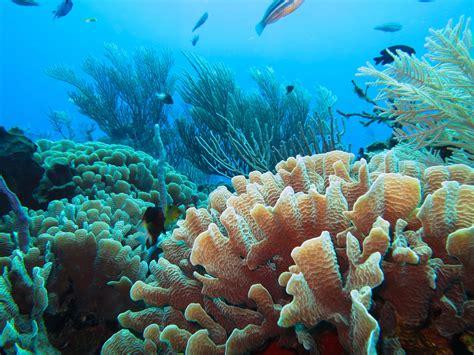Coral reefs are one of the most valuable and biodiverse ecosystems on the planet. They are referred to as the "rainforests of the sea" since they support thousands of marine creatures and play a critical role in maintaining ocean health and human life.
What are Coral Reefs?
Coral reefs are enormous underwater structures made of coral polyps, which are tiny animals similar to jellyfish. Coral polyps live in a colony and secrete calcium carbonate to build hard, stone-like skeletons, which give the reef its shape.
The majority of coral reefs are located in shallow, tropical oceans of warm waters, particularly in places such as the Great Barrier Reef in Australia, the Caribbean Sea, and Southeast Asia.
Importance of Coral Reefs
Biodiversity: Coral reefs are home to about 25% of the total ocean's species, even though they cover less than 1% of the ocean floor.
Coastal Protection: They act as natural defense mechanisms, protecting coastlines against waves, storms, and erosion.
Food and Economy: Coral reefs support fisheries and tourism and provide food and livelihood to millions of individuals around the world.
Medicinal Use: Some sea animals on the reefs are utilized to create drugs for cancer, arthritis, and bacterial infections.
Threats to Coral Reefs
Climate Change: Rising sea temperatures may cause coral bleaching, in which the corals turn white and may die.
Pollution: Waste, plastics, and chemicals destroy coral well-being.
Overfishing: Removing key species disrupts the reef’s balance.
Destructive practices: Dynamite fishing, mining, and destructive tourism can destroy reefs quickly.
What Can Be Done?
Reduce carbon emissions to limit ocean warming.
Never use toxic sunscreens that kill corals.
Encourage reef-friendly tourism and conservation efforts.
Educate others on the importance of coral reefs. Conclusion Coral reefs are crucial to the health of marine life, coastal protection, and human health. Saving them isn't about rescuing the sea—rescuing the balance of life on our planet is.
Coral Reefs: The Rainforests of the Sea
Postado 2025-04-17 14:37:13

Record
Recording 00:00
Os comentários foram desativados para esta publicação.
Categorias
- Sustainability
- Início
- Wellness
- Theater
- Sports
- Shopping
- Religion
- Party
- Outro
- Networking
- Music
- Literature
- Art
- Health
- Gardening
- Jogos
- Food
- Fitness
- Film
- Drinks
- Dance
- Crafts
- Causes
Leia mais
GAMES
This article from Sutter Health discusses the benefits of playing video games, including improved...
SAVE OUR 🌎EARTH
KEEP OUR EARTH GREEN AND CLEAN . RAISE YOUR VOICE AGAINST EVERY ACT OF HARMING THE EARTH LOVE...
How to build lasting habits for succes
Building lasting habits for success involves understanding how habits work, creating a strategy...
Air pollution
To decrease air pollution:-
1. We should use public transport like trains and buses.
2.We should...
Benefits of Tulsi plant
Tulsi, also known as holy basil, has many benefits for your home and health.
Health...
×
Your daily access limit has been reached. Please try again tomorrow.
© 2025 GoSharpener Pvt.Ltd.
Refund and Cancellation policy - We do not entertain any refunds and cancellation Portuguese (Brazil)
Refund and Cancellation policy - We do not entertain any refunds and cancellation Portuguese (Brazil)
